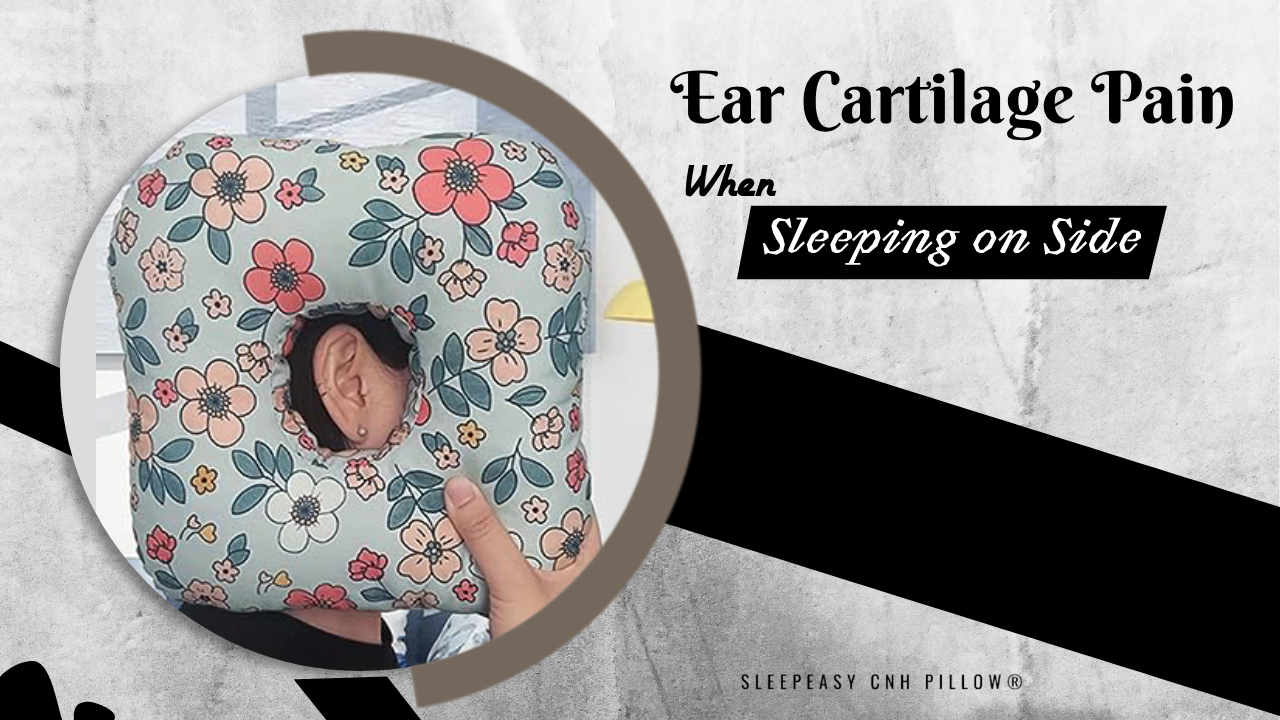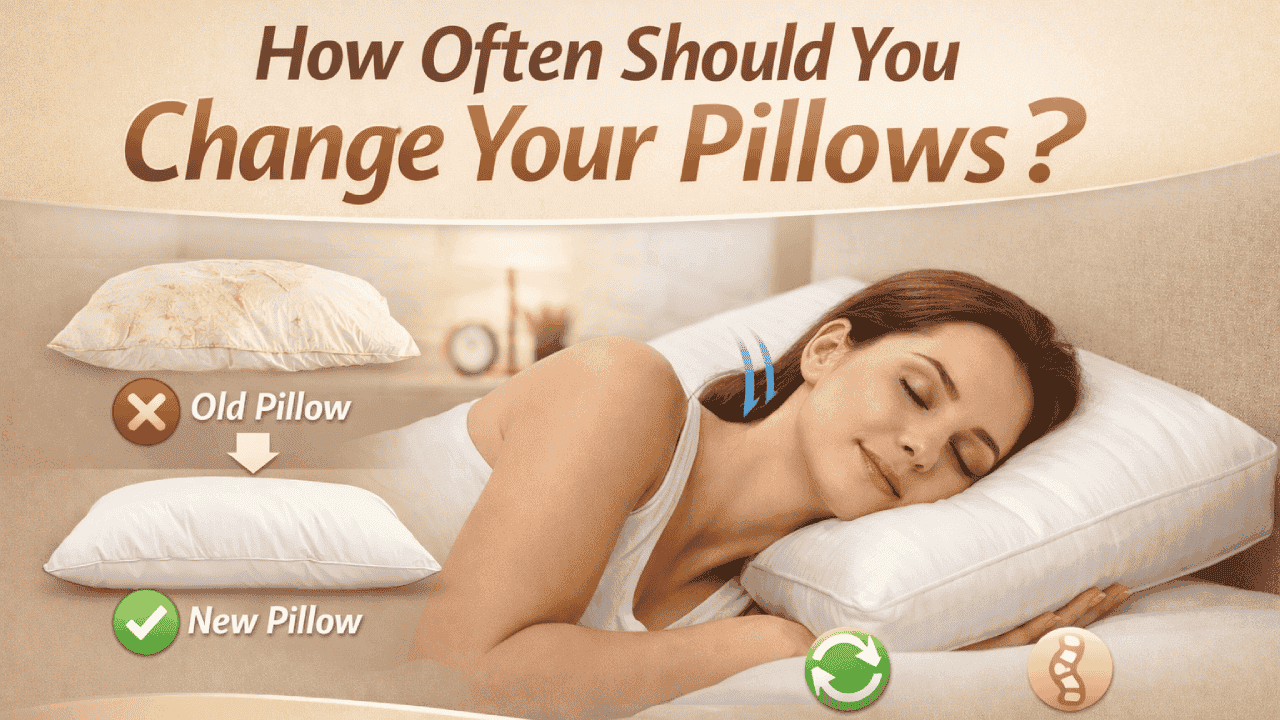Ear Cartilage Pain When Sleeping on Side
Jul 24th 2023
Are you experiencing ear cartilage pain when sleeping on your side? If so, you're not alone. Many people encounter discomfort and tenderness in their ears when they sleep on their side. In this article, we will explore the causes of ear cartilage pain, discuss ways to alleviate the discomfort, and provide tips for a more comfortable sleep. Let's dive in!
Sleep is crucial for our overall well-being and quality of life. However, experiencing ear cartilage pain when sleeping on your side can disrupt your sleep and leave you feeling uncomfortable. Understanding the causes behind this pain and finding suitable remedies can help you get a peaceful night's sleep without any ear discomfort.
Understanding Ear Cartilage Pain
The outer part of our ear, known as the auricle or pinna, consists of cartilage that can be sensitive to pressure and friction. This cartilage can become inflamed or irritated, leading to pain and tenderness. The pain may vary in intensity, ranging from mild discomfort to sharp and persistent aches.
Causes of Ear Cartilage Pain
Pressure and Friction
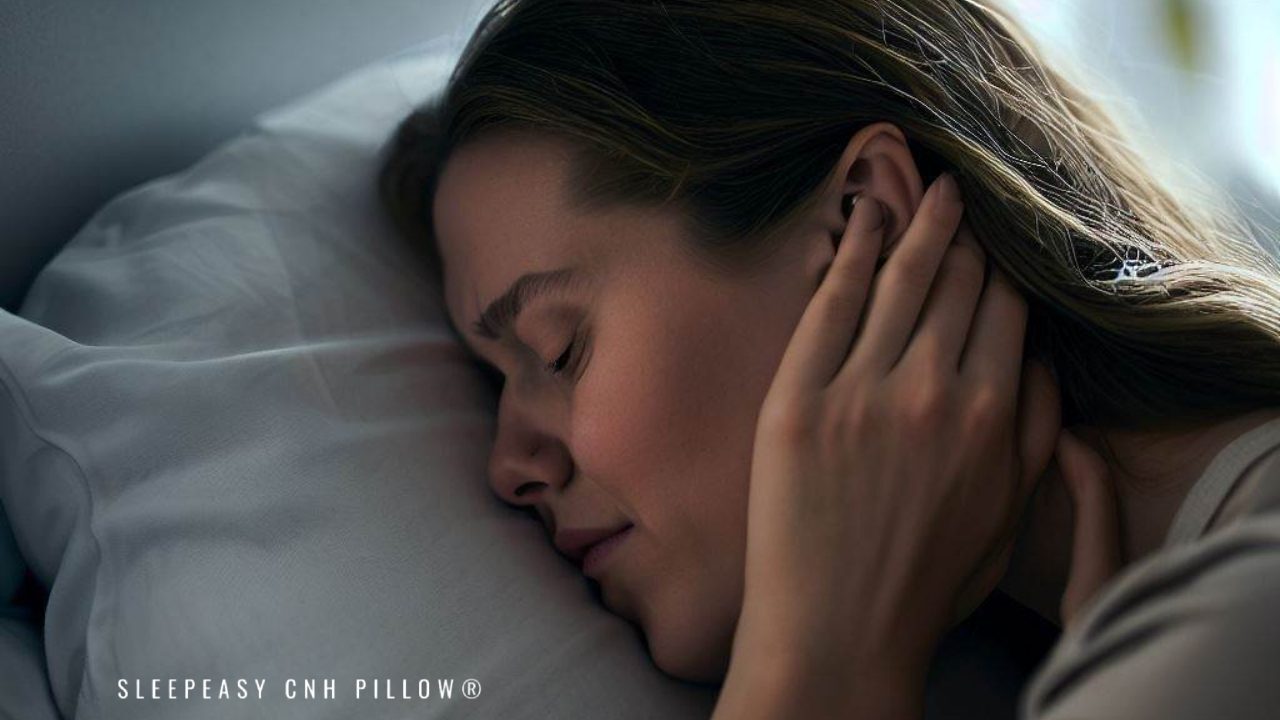
Sleeping on your side can exert pressure on the ear, especially if you rest your head on a hard surface or use a pillow that doesn't provide adequate support. This pressure, combined with friction between the ear and the pillow, can lead to pain and soreness in the cartilage.
Inflammation
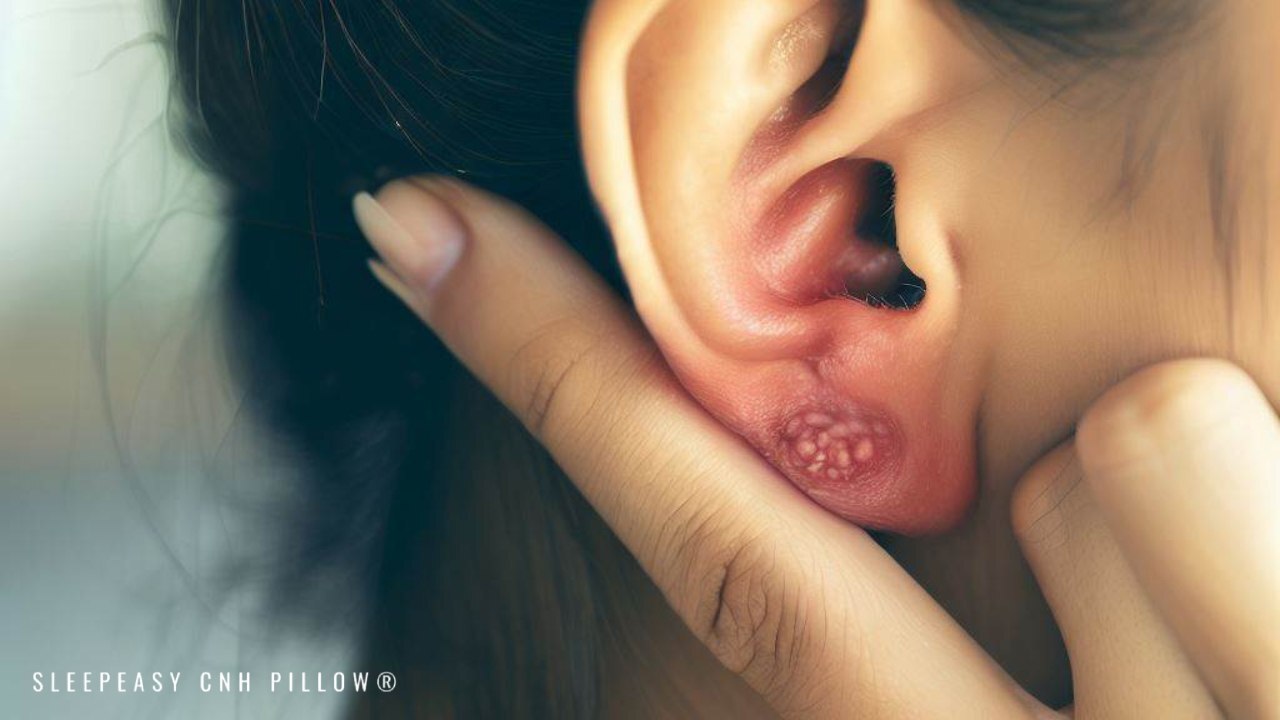
Inflammation of the cartilage, known as chondritis, can occur due to various factors such as injury, trauma, or infection. Conditions like swimmer's ear or eczema can contribute to inflammation, causing discomfort when pressure is applied to the affected area.
Trauma or Injury
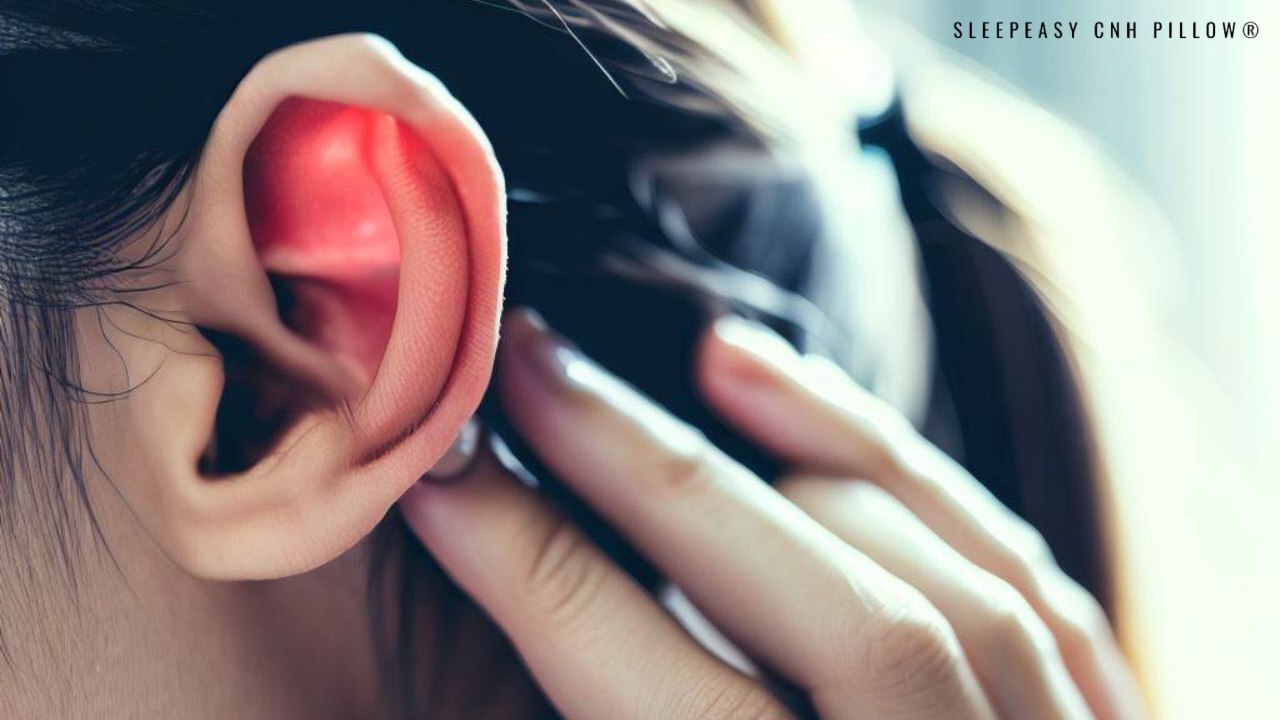
Accidental trauma or injury to the ear can also result in cartilage pain. Activities such as sports, vigorous ear cleaning, or wearing tight-fitting headphones can cause damage to the ear cartilage, leading to pain and sensitivity.
Alleviating Ear Cartilage Pain
If you experience ear cartilage pain when sleeping on your side, there are several measures you can take to alleviate the discomfort. Here are some helpful strategies:
Adjusting Sleeping Positions
Try to change your sleeping position to reduce the pressure exerted on your ear. Sleeping on your back or using a specialized pillow for ear pain or any sleeping ear pillow that provides support for the ear can help alleviate the pain. Experiment with different positions to find what works best for you.
Using Soft Pillows
Opt for soft pillows that align with your head shape and cushion your ears. Memory foam pillow with hole or side sleeper pillow with ear hole are good options as they offer gentle support and reduce friction.. Avoid using firm or high pillows that can put excessive pressure on the ear cartilage.
Applying Warm Compresses
Applying a warm compress to the affected ear can help soothe the pain and reduce inflammation. Use a clean cloth soaked in warm water and gently place it over the painful area for 10-15 minutes. Repeat this a few times a day or as needed.
Trying Over-the-Counter Pain Relief
Over-the-counter pain relievers such as acetaminophen or ibuprofen can help alleviate ear cartilage pain. Follow the instructions on the packaging and consult with a pharmacist if you have any concerns or underlying medical conditions.
Consulting a Healthcare Professional
If the ear cartilage pain persists or worsens despite trying self-care measures, it's advisable to seek medical attention. A healthcare professional can examine your ears, diagnose any underlying conditions, and provide appropriate treatment options tailored to your situation.
Tips for a Comfortable Sleep
Besides addressing the ear cartilage pain directly, implementing a few changes in your sleep routine and environment can contribute to a more comfortable and restful night's sleep. Consider the following tips:
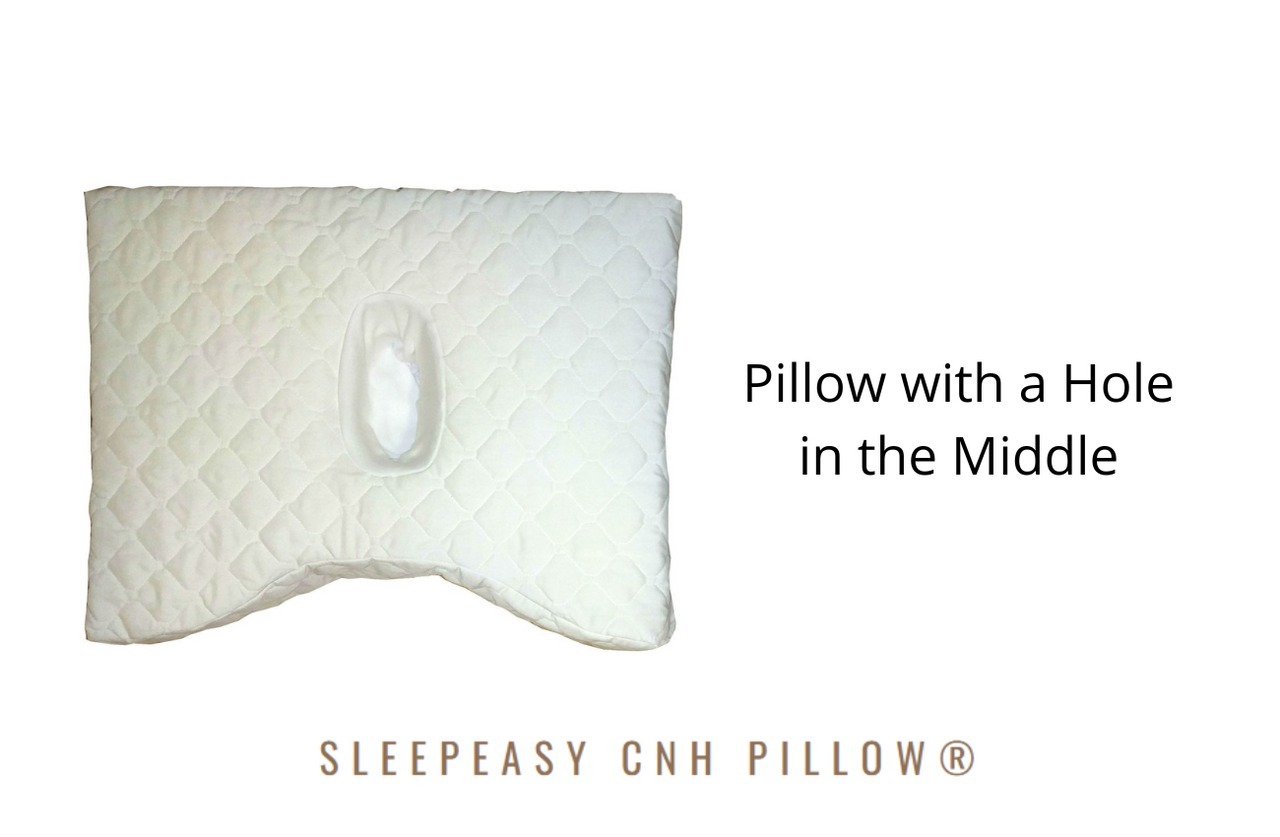
SleepEasy Pillow with a Hole in the Middle
Experience unparalleled comfort and relief from ear pain with our innovative pillow designed with a hole in the middle. SleepEasy Pillow with Hole in the Middle was conceived and designed by Dr. Cannon in the late 1980s. His source of inspiration was the plight of CNH patients who were side sleepers and couldn’t sleep well.
SleepEasy Pillow with a Hole in the Middle$69.99
Buy NowChoosing the Right Pillow
Invest in a pillow that is designed to support side sleepers. Look for pillows with a contour or ear hole that accommodates the shape of your ear. These pillows can alleviate pressure on the ear cartilage and provide a more comfortable sleep experience.
Using Ear Protectors
Consider using ear protectors or earplugs specifically designed for side sleepers. These accessories can help reduce friction and prevent direct pressure on the ears, minimizing discomfort and pain.
Establishing a Bedtime Routine
Establishing a consistent bedtime routine can signal your body that it's time to wind down and prepare for sleep. Engage in relaxing activities such as reading a book, taking a warm bath, or practicing gentle stretches before bedtime.
Creating a Relaxing Sleep Environment
Ensure your sleep environment promotes relaxation. Keep your bedroom cool, dark, and quiet. Use blackout curtains, earplugs, or a white noise machine to minimize external disturbances that could interrupt your sleep.
Practicing Stress-Relief Techniques
Stress and anxiety can negatively impact your sleep quality and exacerbate pain. Explore stress-relief techniques such as meditation, deep breathing exercises, or journaling to promote a sense of calm and reduce any tension that may contribute to ear cartilage pain.
Conclusion
Experiencing ear cartilage pain when sleeping on your side can be a frustrating and uncomfortable experience. By understanding the causes of this pain and implementing suitable remedies, you can improve your sleep quality and wake up feeling refreshed. Remember to adjust your sleeping position, use soft pillows, apply warm compresses, and seek medical advice if needed. Additionally, incorporating tips for a comfortable sleep can further enhance your overall sleep experience.
FAQs
Is ear cartilage pain common?
Yes, ear cartilage pain when sleeping on your side is a relatively common issue that many individuals experience.
How long does ear cartilage pain last?
The duration of ear cartilage pain can vary depending on the underlying cause. In most cases, the pain subsides within a few days with appropriate self-care measures.
Can I use cold compresses for ear cartilage pain?
While warm compresses are generally recommended for ear cartilage pain, some individuals find relief from cold compresses as well. Experiment with both options to see which works best for you.
Are there any natural remedies for ear cartilage pain?
Some natural remedies, such as applying aloe vera gel or chamomile tea bags, may provide temporary relief for ear cartilage pain. However, it's essential to consult with a healthcare professional to ensure appropriate treatment.
When should I seek medical attention for ear cartilage pain?
If the ear cartilage pain persists or worsens despite self-care measures, or if you notice signs of infection such as discharge or fever, it's advisable to consult a healthcare professional for a proper diagnosis and treatment plan.
